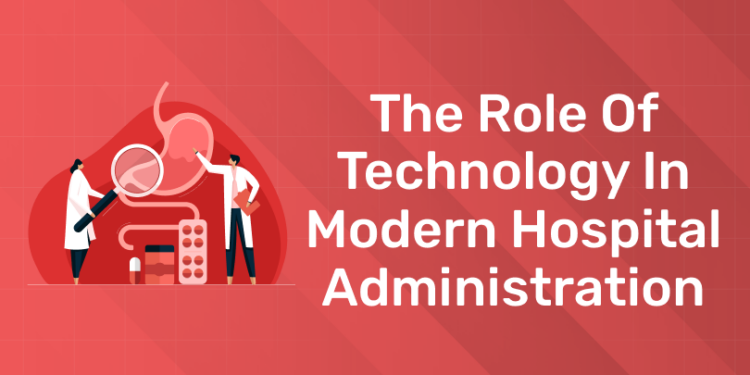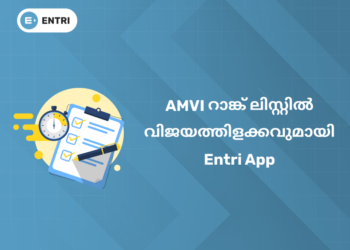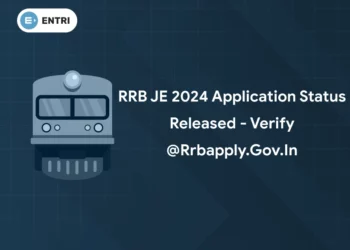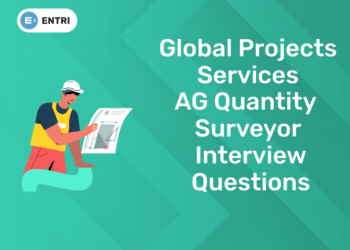Table of Contents
Technology has transformed hospital management by using electronic health records, telemedicine, and remote patient monitoring. These innovations, along with advanced medical devices and data analysis, have improved efficiency and accuracy in patient care. In this blog we will discuss the role of technology in Modern Hospital Administration.
Join Entri’s Hospital and Healthcare Administrator Course
The Role of Technology in Modern Hospital Administration
Efficient Data Management
Technology helps hospitals manage data better. Electronic health records keep patient information organized. Information systems make it easy to access this data, helping doctors and nurses provide better care.
Expanded Healthcare Access
Technology also makes healthcare more accessible. Telemedicine allows patients to receive care from home. Remote patient monitoring helps doctors track patients’ health and intervene early when needed.
Enhanced Medical Capabilities
Advanced technology improves medical care. New devices make diagnoses more accurate and treatments more effective. Better equipment supports higher quality healthcare.
Informed Decision-Making
Technology aids in making informed decisions. Data analytics offer insights that help healthcare providers make better choices. Decision support systems help manage hospital operations efficiently.
Embracing Technology Advancements
Adopting new technology boosts hospital efficiency. It improves decision-making and enhances patient care, ensuring hospitals can deliver top-notch healthcare.
Electronic Health Records (EHR) and Information Management in Modern Hospital Administration
Importance of EHR Systems
EHR systems improve how patient information is stored and accessed. They centralize medical data, boosting efficiency and care quality. This helps healthcare professionals find information quickly. It improves how hospitals operate and patient treatment.
Enhancing Communication and Collaboration
EHR systems enable seamless communication among healthcare providers. They support coordinated patient management with instant access to records. This ensures everyone has up-to-date information. It reduces errors and improves patient care.
Supporting Informed Decision-Making
Real-time patient data aids clinical decisions. EHR systems promote evidence-based practices, enhancing safety. Healthcare providers can analyze trends and patterns. It helps in adjusting treatment plans effectively.
Extending Healthcare Access
Telemedicine and remote monitoring broaden healthcare reach. They allow remote vital sign monitoring and virtual consultations. Patients in remote areas benefit greatly. It ensures timely medical attention and care.
Impact on Patient Care
Improved access and timely care enhance patient outcomes. Technology integration improves healthcare delivery and satisfaction. EHR systems streamline processes and communication. They lead to better overall healthcare experiences.
Telemedicine and Remote Patient Monitoring in Modern Hospital Administration
Enhanced Patient Care and Management
Technology greatly improves how healthcare is delivered and managed. It helps doctors and nurses provide better care to patients. By using digital tools and innovations, healthcare becomes more efficient.
Telemedicine Advantages
Telemedicine extends healthcare beyond hospital walls. It allows remote consultations and post-surgery care. Patients benefit from easier access to medical advice and treatment.
Remote Patient Monitoring
Doctors can monitor patients’ health remotely using technology. This helps detect problems early and manage chronic conditions. It also means patients can get timely medical help.
Improved Healthcare Accessibility
Technology breaks down barriers to healthcare access. Patients in remote areas can now receive care. This improves health outcomes and makes healthcare more equitable.
Integration into Hospital Operations
Hospitals use technology to improve how they work. It streamlines tasks like managing patient records. This makes healthcare delivery smoother and more effective.
Innovative Medical Devices and Equipment in Modern Hospital Administration
The Influence of Technology on Healthcare
Advancements in Medical Devices
Technology enhances diagnosis and treatment with new medical devices. These devices improve healthcare by providing more accurate results and supporting better treatment options.
Benefits of Modern Equipment
Modern equipment enhances precision during medical procedures. This improvement leads to better outcomes for patients, ensuring more effective treatment and recovery.
Integration into Patient Care
Technology integration boosts efficiency in hospitals. It ensures patient safety and maintains high-quality healthcare standards, optimizing the overall patient care experience.
Future Developments
Continual advancements in technology drive ongoing improvements in patient care. Innovation plays a crucial role in pushing healthcare forward, promising even greater benefits for patients and providers alike.
Data Analytics and Decision Support Systems in Modern Hospital Administration
Using Data Analytics
Data analytics is vital for improving healthcare delivery. It analyzes patient trends and outcomes, providing insights to enhance healthcare practices.
Benefits of Decision Support Systems
Decision support systems assist clinical decision-making processes. They offer real-time data and evidence-based recommendations, improving medical intervention accuracy and patient outcomes.
Enhancing Patient Care
Technology optimizes hospital operations and enhances efficiency. It reduces costs and streamlines administrative processes, allowing healthcare providers to focus more on patient care.
Future of Healthcare Technology
Ongoing advancements in healthcare technology improve delivery. Technology innovation drives better patient care and medical practices forward.
Embracing Technological Advancements in Modern Hospital Administration
Impactful Medical Technologies
Advanced imaging and surgical equipment enhance treatments. They improve accuracy and effectiveness. Wearable health monitors provide continuous health data. These technologies improve treatment outcomes and patient safety.
Benefits for Patient Care
Medical technologies increase precision in procedures. They lead to better patient outcomes. Healthcare providers can offer more effective treatments. This improves patient satisfaction and health.
Optimizing Hospital Operations
Medical technologies streamline processes and boost efficiency. They enhance quality of care in hospitals. These advancements help facilities operate smoothly. Resources are used effectively and patients receive timely care.
Hospital Administration Software
In healthcare administration, advanced technology is crucial for efficient and patient-focused services. Hospital management software integrates healthcare management with hospitality principles.
Managing Healthcare Operations
Efficiently handles patient scheduling and records management. Manages resources and finances effectively. Ensures smooth operation of healthcare facilities.
Functions of Software
Manages patient data and appointments seamlessly. Supports resource allocation and financial analysis. Streamlines administrative processes for improved efficiency.
Benefits for Healthcare
Reduces administrative workload for better patient care. Ensures a smoother patient journey through healthcare systems. Enhances overall patient satisfaction.
Enhancing Patient Care
Integrates hospitality principles for patient comfort. Supports patient well-being in healthcare settings. Improves overall patient experience and health outcomes.
Vital Technology Role
Essential for efficient and compassionate healthcare services. Evolves to meet patient-centered care and operational needs. Continually improves to enhance healthcare delivery.
Artificial Intelligence and Machine Learning in Modern Hospital Administration
Revolutionizing Healthcare
AI and ML are transforming healthcare and optimizing patient care, drawing parallels with their impact in hospitality.
Key Applications
-
Predictive Analytics
Predictive analytics uses AI to analyze data and predict needs. It allocates resources efficiently for patient care priorities. This technology helps hospitals operate more effectively. It improves decision-making based on data insights.
-
Operational Efficiency
AI streamlines hospital workflows, similar to hospitality practices. It optimizes processes for better staff focus and efficiency. This enhances overall healthcare delivery. It ensures tasks are completed more effectively.
-
Personalized Healthcare
AI customizes treatment plans based on individual patient data. This improves patient outcomes and satisfaction with care. It tailors medical approaches to patient needs. It uses data to provide better healthcare solutions.
-
Resource Management
AI optimizes the allocation of supplies, staff, and beds. It improves efficiency in healthcare operations. This approach mirrors effective practices in the hospitality sector. It ensures resources are used effectively.
- Data Security
AI ensures cybersecurity to protect patient data. It follows protocols to safeguard sensitive information. This ensures compliance with privacy regulations. It maintains trust between patients and healthcare providers.
Internet of Things (IoT) in Modern Hospital Administration
Transforming Healthcare Management
IoT technology is revolutionizing how healthcare services are delivered and managed, similar to its impact in the hospitality sector.
Applications in Healthcare
1. Enhanced Patient Monitoring
Patient monitoring tracks vital signs and activities in real-time. It improves proactive healthcare management. This helps healthcare providers intervene promptly when needed. It ensures better health outcomes and patient safety.
2. Improved Asset Management
Asset management monitors equipment location and usage. It reduces downtime and enhances efficiency. This optimizes resource allocation in healthcare facilities. It ensures equipment availability for better patient care.
3. Smart Facility Operations
Smart operations optimize energy usage and enhance security. They create a comfortable and safe patient environment. Automated systems regulate temperature, lighting, and security. This improves overall operational efficiency in healthcare settings.
4. Telehealth and Remote Monitoring
Telehealth enables remote patient monitoring and consultations. It supports patients with chronic conditions. Remote monitoring reduces the need for frequent hospital visits. It enhances healthcare accessibility and patient convenience.
5. Data-Driven Decision-Making
Data-driven decisions use IoT data for informed choices. It optimizes resource allocation and processes in hospitals. Real-time data analysis improves operational efficiency. It enhances patient care outcomes and facility performance.
Advantages for Healthcare
IoT in healthcare integrates technology for efficient care delivery and exceptional patient experiences, aligning with modern healthcare and hospitality standards.
Enroll in our Hospital and Healthcare Administrator Course now!
Benefits of Technology in Modern Hospital Administration
Enhanced Data Management
- Electronic Health Records (EHR)
- Stores and retrieves patient information efficiently.
- Provides quick access for care coordination.
- Automated Alerts
- Sends reminders for appointments and follow-ups.
- Improves patient engagement and treatment adherence.
Improved Access to Care
- Telehealth Services
- Enables remote consultations with specialists.
- Bridges healthcare gaps in rural areas.
Reduced Errors
- Digital Prescriptions
- Minimizes medication errors and improves safety.
- Ensures accurate prescription management.
- Diagnostic Support
- Assists in identifying and correcting errors.
- Guides healthcare decisions for better outcomes.
Enhanced Hospital Operations
- Centralized Information Systems
- Integrates resources and staff scheduling.
- Optimizes facility management for better patient care.
Effective Customer Management
- CRM Technology
- Enhances patient communication and satisfaction.
- Streamlines administrative processes like claims and appointments.
Technologies Used in Healthcare Management
Technological advancements are revolutionizing healthcare management, improving efficiency and patient care through various tools and systems.
Electronic Hand-off Tools
Electronic hand-off tools help caregivers communicate efficiently. They ensure quick transfer of patient information. These tools are crucial for patient safety. They maintain continuity of care between shifts.
Electronic Patient Portals
Patient portals provide secure access to health information. They allow electronic communication between patients and providers. Portals improve disease management and patient engagement. Patients can monitor their health and communicate with providers.
Telemedicine
Telemedicine allows remote consultations and healthcare delivery. It supports early diagnosis and timely treatment. Telemedicine enhances access to medical expertise. It benefits patients in remote areas.
Health Wearables
Health wearables monitor vital signs and health metrics. They support disease prevention and management. Wearables provide continuous health data. They empower individuals to track their health actively.
Artificial Intelligence in Healthcare
AI analyzes medical data for diagnosis and treatment. It personalizes care based on patient data. AI enhances healthcare decision-making. It improves patient outcomes and efficiency.
Blockchain in Healthcare Transactions
Blockchain ensures secure and transparent transactions. It safeguards health records and financial data. Blockchain enhances data integrity and confidentiality. It promotes trust in healthcare transactions.
Healthcare Management Information Systems (HMIS)
HMIS provide insights for optimizing healthcare operations. They facilitate efficient prescription management. HMIS improve patient care coordination. They streamline administrative processes for healthcare providers.
Join Entri’s Hospital and Healthcare Administrator Course
The Role of Technology in Modern Hospital Administration: Conclusion
Technology is crucial in modern hospital administration, transforming healthcare delivery with electronic health records and telemedicine. These advancements enhance efficiency and patient care, benefiting hospitals by improving operations and ensuring more personalized services.
Frequently Asked Questions
What is the role of technology in hospital administration?
Technology in hospital administration improves efficiency and patient care through tools like electronic health records and telemedicine.
How does technology benefit hospitals?
Technology enhances operations by streamlining data management and improving access to medical information.
Why is technology important in healthcare?
It ensures accurate patient records, faster diagnoses, and better communication between healthcare providers and patients.











